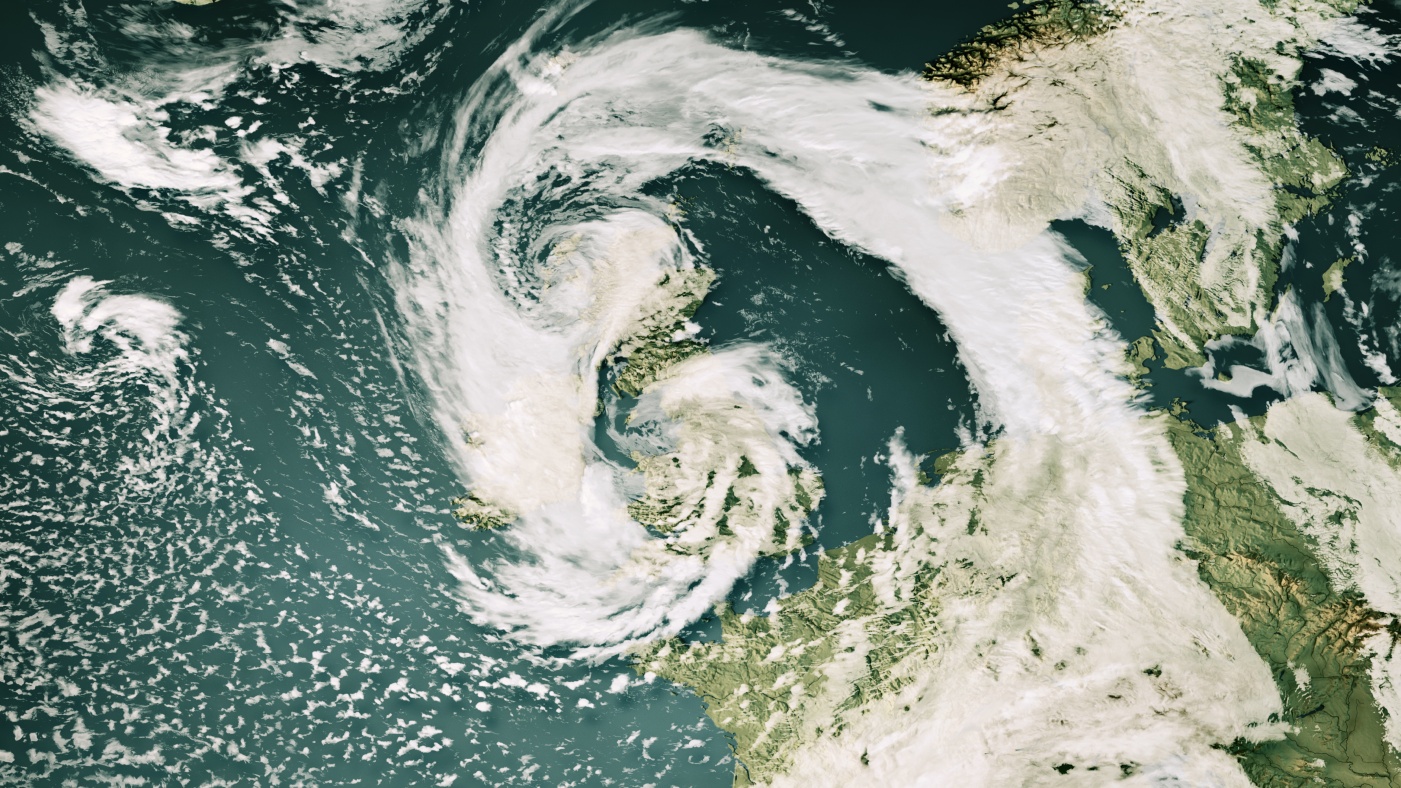Winds of change: how to fix long-term weather forecasts
A new research project aims to accurately predict the weather up to a month in advance

A free daily email with the biggest news stories of the day – and the best features from TheWeek.com
You are now subscribed
Your newsletter sign-up was successful
The average British person spends about four-and-a-half months of their life talking about the weather, according to a 2018 study. But the "mainstay of casual conversation" may now be under threat, said The Guardian, as researchers embark on a project designed to vastly improve the accuracy of long-term weather forecasts.
Launched by Reading University, in partnership with the Met Office and the European Centre for Medium-Range Weather Forecasts, the 15-year programme aims to identify the "minute influences" that are important to weather patterns and "uncover the limits of predictability in the real world".
How accurate could these forecasts be?
Meteorologists already use extensive data from a number of sources that is fed into supercomputers, generating highly accurate weather forecasts days in advance.
The Week
Escape your echo chamber. Get the facts behind the news, plus analysis from multiple perspectives.

Sign up for The Week's Free Newsletters
From our morning news briefing to a weekly Good News Newsletter, get the best of The Week delivered directly to your inbox.
From our morning news briefing to a weekly Good News Newsletter, get the best of The Week delivered directly to your inbox.
The new research programme, called "Advancing the Frontiers of Earth System Prediction", aims to push these capabilities further, by addressing complexities in weather variables, especially in cities, where buildings can have big impacts on weather phenomena.
One of the key goals of the project is to be able to determine what the weather will be up to a month in advance, Professor Rowan Sutton, research dean for the environment at Reading University, told The Guardian.
These predictions still won't be able to tell what the weather will be like on any particular day, but "we would hope to be able to say we are likely to experience a period of very wet and windy weather – or enjoy sunny weather – four weeks in advance of a given date", Sutton said.
"That will not guarantee you have sunshine for your wedding day but it will undoubtedly have lots of useful applications – for farmers or energy companies, for example."
A free daily email with the biggest news stories of the day – and the best features from TheWeek.com
Having improved forecasts will be vital as the climate becomes "more extreme", said Jane Shilling in The Telegraph. Better forecasting is likely to play "an important role in mitigating the effects on lives and livelihoods of floods, drought and storms".
How accurate are our forecasts now?
Meteorologists can currently forecast about a week in advance with a reliable level of accuracy. They play a pivotal role in saving billions of pounds for the UK annually by issuing warnings about impending storms, floods, droughts and potential disruptions to flights.
While forecasting a week ahead may seem commonplace today, it marks a substantial improvement from the 1970s, when forecasts were limited to only a day or two in advance. Professor Sarah Dance, an expert in data assimilation at Reading's Department of Meteorology, told The Guardian that the predictability of our weather forecast has been improved "by a day every decade since the middle of the last century".
But forecasting too far into the future remains a challenge. The Met Office recently cast doubt on claims made by some newspapers, which reported that an Arctic freeze would "grip the nation" and suggested that "large swaths of the country are set to be blanketed by snow". The Met Office emphasised that "a single weather chart for weeks away isn't representative of a fully-formed long-range forecast, which would include some uncertainty".
Could AI help predict the weather?
AI will almost certainly play a role in improving weather forecasting in the future, as deep learning capabilities allow for giant leaps in accuracy that would otherwise take decades to achieve.
"The pattern recognition that you're doing as a meteorologist is precisely what new AI forecasting models are doing on a very, very grand scale," Alex Levy, CEO of weather prediction start-up Atmo, told ABC.
AI models such as GraphCast, developed by Google DeepMind, are already integrated into Google's "Nowcast" weather app, providing predictions just hours in advance. But although an AI model might be able to make a prediction in minutes, there is "no way to determine exactly how the AI arrives at its forecast", said Scientific American. So there is still a significant way to go until forecasts produced by AI models can be truly reliable.
Sorcha Bradley is a writer at The Week and a regular on “The Week Unwrapped” podcast. She worked at The Week magazine for a year and a half before taking up her current role with the digital team, where she mostly covers UK current affairs and politics. Before joining The Week, Sorcha worked at slow-news start-up Tortoise Media. She has also written for Sky News, The Sunday Times, the London Evening Standard and Grazia magazine, among other publications. She has a master’s in newspaper journalism from City, University of London, where she specialised in political journalism.